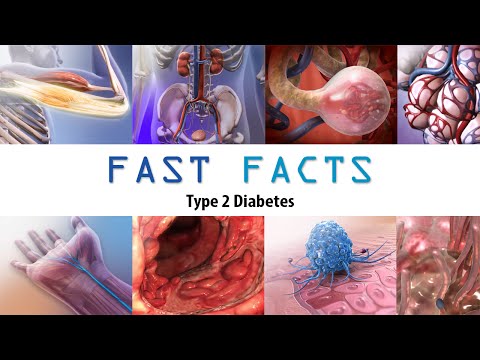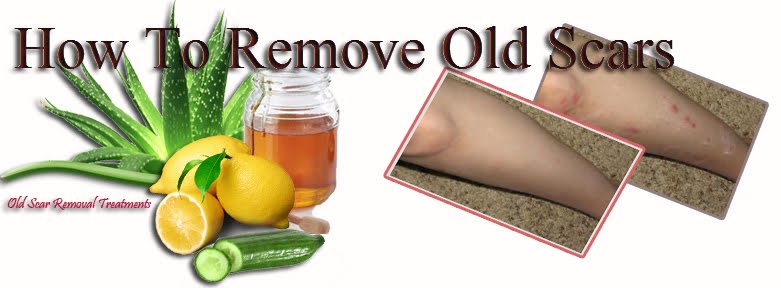Community nursing plays a pivotal role in promoting preventive care, contributing to the well-being of local communities in numerous ways. Preventive care is an essential aspect of healthcare that reduced the risk of serious diseases and illnesses, ultimately saving lives. This article delves into how community nursing fosters preventive care and why this is immensely beneficial for local communities.
Preventative care entails a range of measures, from health screenings to lifestyle guidance, and it impacts individuals of all ages. Beyond personal health, it also has wider-reaching effects on healthcare costs doctor’s visits, healthy decision-making, and access to care, especially for undeserved populations.
Below is a comprehensive exploration of how community nurses play a vital role in delivering these services, and the essential skills and education required to excel in this rewarding field. As the demand for community health nurses continues to rise, it is important to look at why preventative care is needed and the benefits it can bestow on the community.
The benefits of preventative care
Reduces the cost of healthcare for everyone
When more people need more serious healthcare, the overall cost of insurance premiums and services goes up. While some factors related to healthcare costs are beyond anyone’s control, anything that can be done to reduce the cost of care without compromising the quality of care received, is more than welcome. Preventative care allows nurses to take care of more people in a given amount of time without using as many resources.
Reduces doctors’ visits
While people tend to think that preventative care visits increase the number of trips to a doctor’s office, the truth is that overall, preventative care reduces the average amount of visits each patient needs. Consider that preventative visits for many people are only once or twice a year but can prevent serious diseases that may require multiple visits per week or more, depending on the severity of the illness or condition.
If you want to keep visits minimal over your life, then you should ensure that you are keeping up with your preventative care. If you ever have to cancel an appointment, it is essential that you reschedule even if you tend to think of preventative care visits as good but not necessary. It is better to have an appointment at a later time then not to go at all.
Helps people make healthy life choices
Preventative care visits are a great time to educate patients on health-related issues and answer any patient’s questions. This is especially true with younger patients who are just starting to learn about their bodies and how to make good choices for their physical and mental health.
For example, diet and exercise can be very confusing and even hard to talk about for many people. Changing your lifestyle is often not easy. At annual visits nurses can help patients find ways to eat better and achieve physical fitness rather than resorting to fad diets or worse.
Family planning and contraceptive education can help prevent unwanted pregnancies and sexually transmitted diseases in people of reproductive age. It is important for patients to know how to use different contraception methods and the limitations of each when it comes to preventing disease.
Drug and alcohol use are on the rise. Preventative care visits can help patients learn ways to reduce or eliminate substances from their lives and, in severe cases, refer them to other providers and services that can offer them the level of treatment and support they require to be healthy.
Community health nurses help provide important primary healthcare
There is a major shortage of primary care providers that is not likely to resolve itself for a long time. The reasons for this shortage include a high population of older adults and many more people who are at an age where they will soon need increasing amounts of healthcare services.
Community health nurses can provide a lot of the services that a primary care provider typically offers. This means more people can get the care they need and not have to wait for extended periods of time to get an appointment. Remember that just because a primary care provider agrees to accept you as a patient does not mean you can get an appointment promptly.
Community health nurses help bring care to remote and disadvantaged people
Access to healthcare can vary greatly based on where you live and what groups you may fall into within modern society. Socially or economically disadvantaged people and areas often do not have the access to healthcare services that more populated and prosperous areas do. This means resources may be stretched at times, leading to many people neglecting their healthcare needs out of shear frustration over lack of available doctors and appointments.
Community nurses often work at community health clinics and departments and help reach out to those who are in dire need of even basic healthcare services.
Preventative care reduces lost work time and hardship on families
Since preventative care can catch conditions before they become serious, it reduces lost work time which means families are less likely to suffer financial troubles related to an inability to work. In turn, this makes it less likely that a family will need to rely on social program resources to meet their basic needs. The end result is more prosperous communities and more resources for when people do need a lot of extra help.
As a community health nurse, you will also be a strong patient advocate
Community nurses advocate for their patients regularly. This means they go above and beyond the level of advocacy typically seen at hospitals and other medical facilities. A community health nurse will work to find access to more extensive treatment and specialists. This can include helping find financial resources to help patients pay for their needed treatments. In some ways a community health nurse acts as a social worker too. That being said, a community health nurse is more likely to work with social workers than if they worked in another area of medicine.
Daily duties of a community health nurse
A community health nurse performs many tasks throughout their work day. Of course, these tasks may vary daily and what current health events may be occurring in a community.
Here are just a few of the duties that are expected of community health nurses:
- Administering vaccinations to those of all ages, particularly offering vaccinations required for attending school.
- Assisting doctors with diagnosis and treatments
- Helping new and expecting mothers and fathers gain access to important healthcare and educating them on future family planning
- Offering well child and well-baby health checks and necessary vaccinations
- Providing checkups and checking the vital signs of adult members of the community
- Helping people manage chronic health conditions
- Finding financial resources and social service programs to help patients lead a healthy and independent lifestyle
Skills and education needed to be a community health nurse
Being a community health nurse is a very rewarding and fulfilling job for anyone who wants to make a major difference in the world around them. To become a community health nurse, you will need to earn at least a Bachelor of Science in Nursing or BSN. Another one of the nursing acronyms you may have seen is FNP or family nurse practitioner.
As an FNP you can play an even larger role in helping bring primary and preventative care services to those in your community. Marymount University offers excellent online degree programs whether you are interested in an accelerated bachelor of science nursing degree or are an RN looking for ways to advance your career and earn your MSN-FNP degree to become a family nurse practitioner.
Here are some of the skills you need to hone to be a great community health nurse:
Improve your cultural awareness
It is important to know as much as you can about the communities and people you wish to serve. Over the course of your career, you may find that you work in several different types of communities or that your community starts to change and become more diverse. Diversity does not just mean race or ethnicity. Diversity can be different religions, sexual orientations, or any distinct group that is a known presence in your community.
Becoming more culturally aware can be achieved by learning about different people online and trying to interact with people from different backgrounds whenever possible. Asking people polite questions about themselves can also help you understand those different from you. By gaining a better understanding, you can provide a higher level of care to all your patients and avoid unnecessary moments of discomfort or misunderstanding.
Communication
All healthcare workers need to be skilled at verbal and written communications. As a community health nurse, you will spend a lot of time with patients and their families but you also may provide educational classes and services that require great public speaking skills.
Being able to explain complex topics in an easy-to-understand manner clearly is a skill that will serve you well when you ensure that patients have the information, they need to make healthy life choices at all stages of their lives.
Since so much information is passed through texting, email, and databases, written communication skills are way more important than many people realize. For example, patient notes are all typed into the patient’s record promptly. As you can imagine, notes must be concise but full of information. Leaving out important information or stating something in a way that is harder to understand could lead to mistakes or, at the very least, wasted time.
Organization
Practically everyone could use a little improvement when it comes to organizational skills. This is especially true if you are starting a new position. Having a good system for organization may take a little time to get in place but it will save you a lot of time and frustration in the future. In addition, being well-organized will allow you to provide more care to your patients and their families.
Organization also involves being great at prioritization. It is good to make sure that you are keeping priorities straight, especially when things get really busy. Priorities can change over time of course but you will find making sure you take care of the most important tasks first will eliminate some stress and allow you to care for more patients.
Learn to be the best listener you can be
Working with people from a wide range of backgrounds can be challenging simply because there is so much you need to know. This means being an excellent listener is a skill that is invaluable at all times. Showing empathy where appropriate and using good body language will let people know that your attention is entirely on them and their needs.
Good listening skills will allow you to gain the information you need to provide a high level of care and ensure that your patients are comfortable enough to come back to you with any concerns or questions. This means you can ensure they take preventative care visits seriously and schedule them well in advance so nothing is overlooked.
Teamwork
As a community nurse, you will work as a team with other healthcare workers. In many cases, you will even be in charge of organizing and delegating tasks to others. Working well with a team will not only allow you to do your job better, it will reflect well on everyone around you and ensure they can accomplish their tasks more efficiently as well.
Any opportunity you have to gain management and teamwork skills is one you should take to be as prepared as possible.
Grant writing and project planning
Gaining critical funding for new projects and health initiatives may involve writing grants. Researching and putting together a well-thought-out grant proposal takes time and dedication not to mention great writing and communication skills. Taking a class in grant writing as part of your studies or continuing education courses is advised for anyone wishing to work within a community as a nurse or volunteering with organizations. Having grant writing skills on your resume can help you land the position you want sooner rather than later.
Special duties of community nurses
Outbreak response and prevention
There are times when there are community outbreaks of specific diseases. For example, during the COVID-19 pandemic, community nurses played a vital role in educating the public on how to prevent infection and what to do if you experience symptoms. This type of outreach helps reduce the number of infections during any health crisis.
Community nurses also help with things like testing clinics and may work to treat disease outbreaks within a community.
Education at schools
Sometimes, community nurses are asked to give classes or instruction to students to help improve their health knowledge or address issues of particular concern within the community. They may also work with educators to provide other classroom instruction when it may benefit something being studied. For example, a science class may involve a topic where a nurse could provide valuable insight.
Career counseling is another area a nurse may find themselves advising high school students and considering their next steps after graduation.
Community health nurses are needed all over
If you are looking for a job that allows for options that allow you to relocate, community nursing can allow that. Due to the high demand for nurses, and many health organizations recruiting well outside their local area, many options exist. You may be able to find a better position than what you might expect if you are willing to relocate.
The increasing demand for community nurses
Community health nurses are vital in helping people lead a healthy life. In many cases, community health nurses provide much-needed healthcare to the more vulnerable and disadvantaged people in an area. During a time, such as now when there is a distinct lack of primary care providers despite more people than ever being insured, community nurses are needed now more than ever.
Remember that many great online degree programs allow you to start working towards a healthcare career while keeping your current job. Accelerated nursing degree programs allow you to become an RN in as little as 18 months. You can continue your education even more while working as an RN if you want to be a family nurse practitioner within a community.









Pingback: How Do The Different Types Of Physician Mortgage Loans Compare?